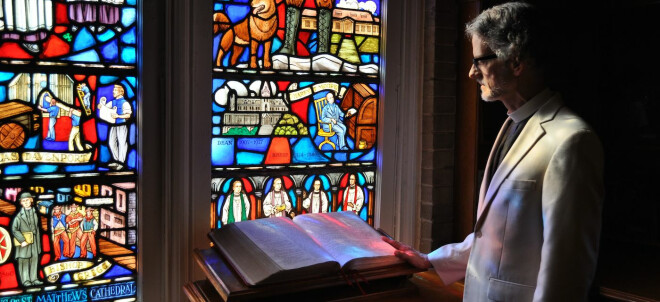Your Future is Greater Than Your Past

An old book on friendship was saying that young people find it easier to make friends, because they are not yet burdened with the wounds of life. The view has plausibility. When life is young and the world full of unexplored possibility, one readily enters into friendships. Then, later on, one may have a friendship (or a few friendships) whose depth and importance lie precisely in the friendship’s longevity. “He’s been my friend since college,” you might say. Or, “I’ve known her since we were both new hires at MCI.” (Remember MCI?)
And when one has experienced the richness of a long-matured friendship, it can be hard to launch into a new one. An older person might well feel the weight of the past and the uncertainty of the future, and judge it just isn’t worth the candle to try to make new friends.
As the old book was saying, friendship seems easier for the young.
---
Thank God for the Trinity! (Thank God for himself!) The great Lutheran theologian Robert Jenson speaks of the Holy Spirit as the future of God. Jenson has a way of putting temporality into the being of God. He understands the Triune Identity to be the author of creation. God is also a character within the story of creation, the Word incarnate who is Jesus of Nazareth.
But God is not just, as it were, behind us (as creator or source of our being); he is not just, as it were, beside us (as a fellow human, Jesus); God is also in front of us. The Holy Spirit is God’s guarantee that, in the end, our life will be meaningful—that history will have a shape and a purpose and an end. The end of all things (and not just their beginning) is God.
---
This means two things that are pastorally important.
First, God is in your own future. Thus your life can have eternal significance, thanks to the God in whom you put your trust.
Second, with God in your future, there is more life in front of you than in your past. For although your life will come to an end, that end of your life is given by the Holy Spirit, and it is hidden in Christ, hidden, thus, in the triune life of God.
---
Let me put it another way. In Christ, there are no old people. All of us have before us more life, more living, more excitement and adventure. Whether we are 15 years old . . . or 45 . . . or 75 . . . or even if we are 105 years old, there is still more to our future than there is to our past.
So, to get back to the question about friendship, there is no reason for people of any age to hold back from making friends. Our future in Christ, the lure of the Holy Spirit, is a future of more and more friends.
---
Out & About. This Sunday, February 26, I’m preaching at the Church of the Good Shepherd, 11122 Midway, Dallas, at 8 and at 10:30 a.m.
Monday, February 27, is the first session of a three-week class on Losing Susan: Brain Disease, the Priest’s Wife, and the God Who Gives and Takes Away. We’ll do Part I that evening. The class meets at 6 p.m., for one hour, at Church of the Incarnation, 3966 McKinney, Dallas.
Ash Wednesday, March 1, I’ll be preaching at the traditional services at Church of the Incarnation, which are at 7 a.m., noon, and 6 p.m.


